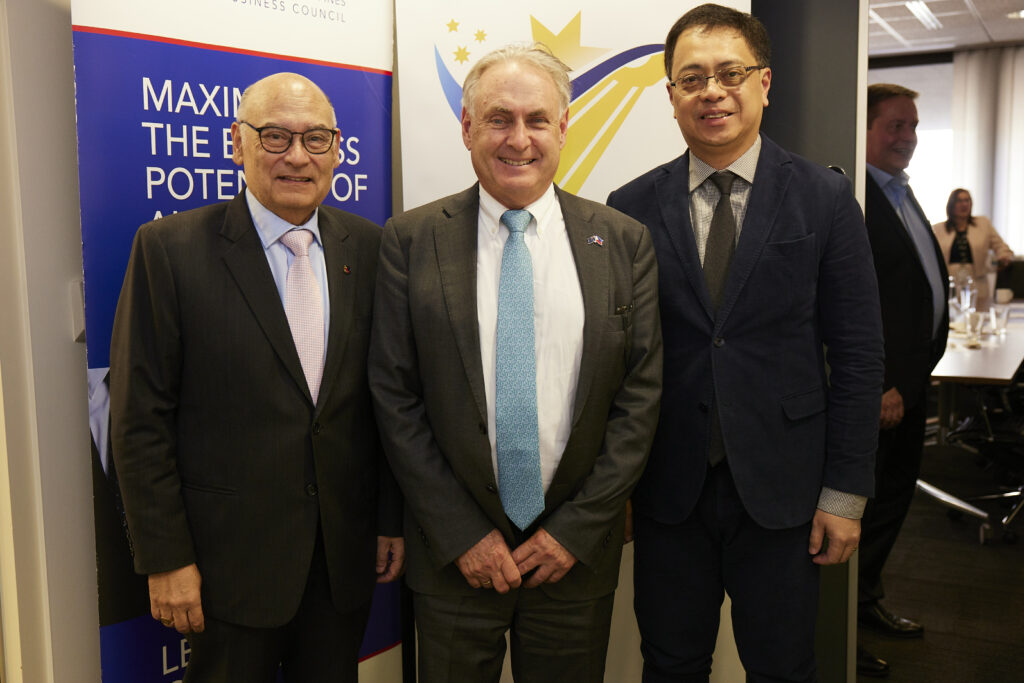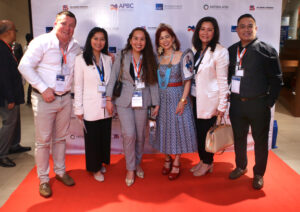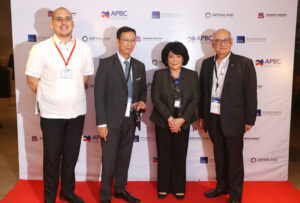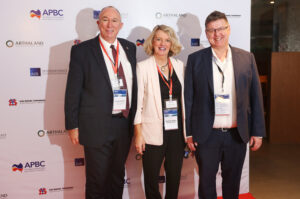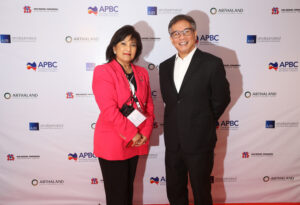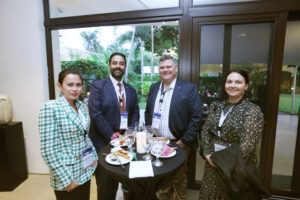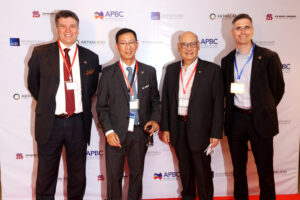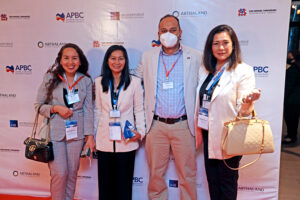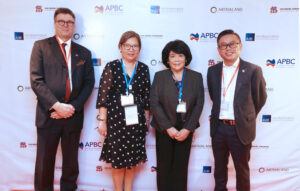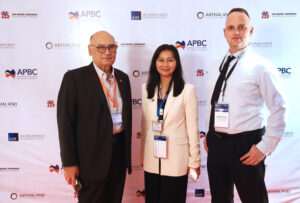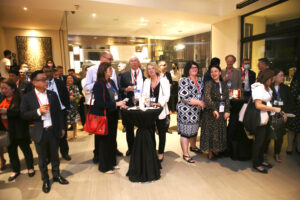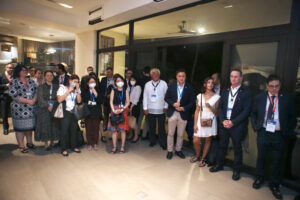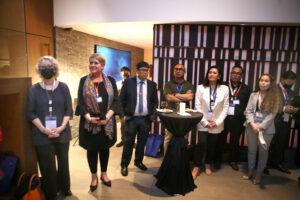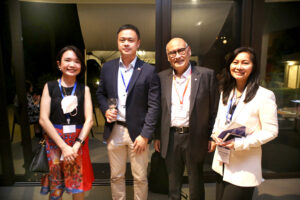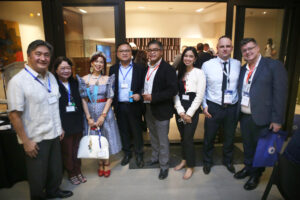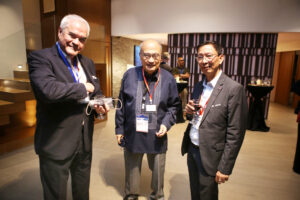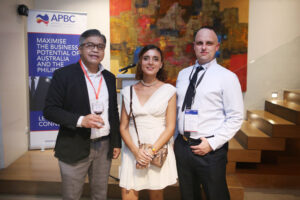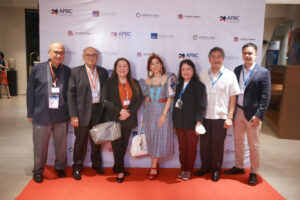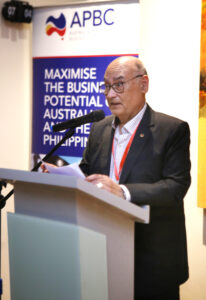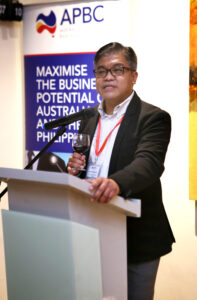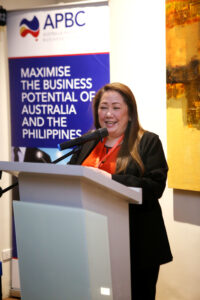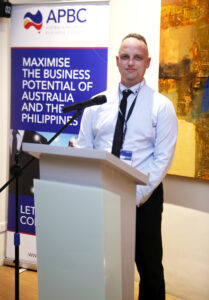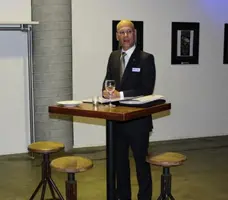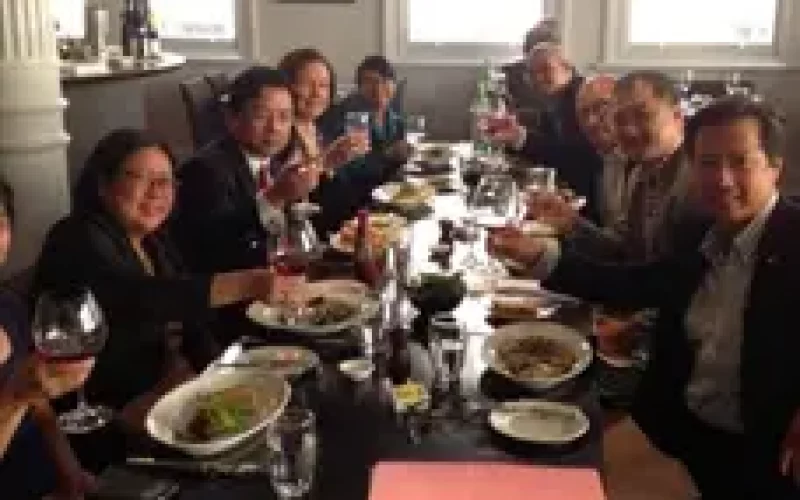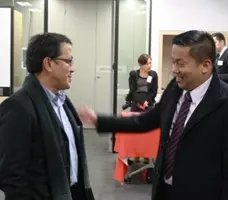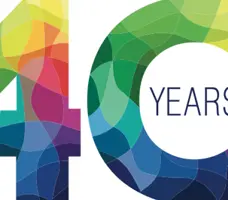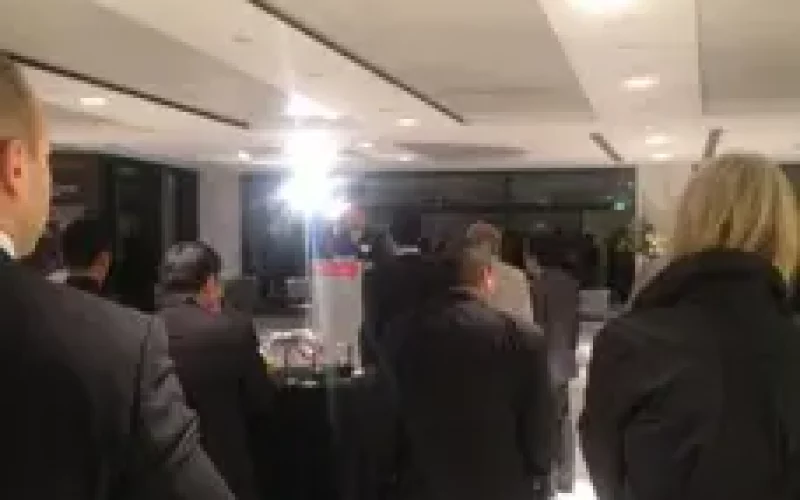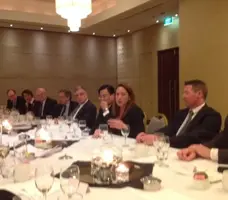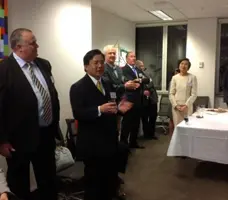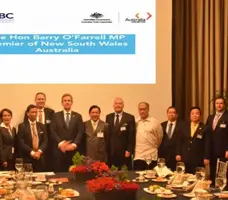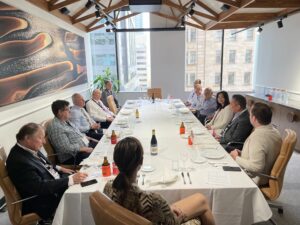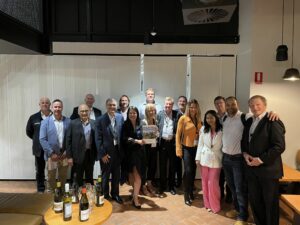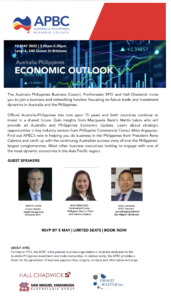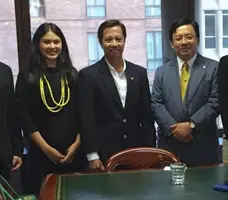On the 10th of September 2023, a dialogue was held with Trade and Tourism Minister Senator the Hon Don Farrell, chaired by Ambassador to the Philippines. H.E Ms HK Yu PSM with participating private sector representatives from Australia and the Philippines for the sixth Philippines–Australia Ministerial Meeting (PAMM) in Adelaide. The dialogue generated the opportunity and continuity for Australia and the Philippines to place the recently signed strategic partnership into action.
The Australian Government Delegation included: Mr Clancy O’Donnell – Trade Adviser to the Minister for Trade and Tourism, Mr Ravi Kewalram – First Assistant Secretary, Free Trade Agreements and Stakeholder Engagement Division DFAT, Mr Jay Meek – General Manager for Trade Austrade, Mr Hugh Robilliard – Assistant Secretary, Southeast Asia Maritime Branch DFAT, Ms Jill Collins – Director DFAT South Australia State Office, Ms Johanna Stratton – Director, Southeast Asia Maritime Branch DFAT and Mr Angus Coverdale – Policy Officer, Philippines Section DFAT.
Business delegation present at the dialogue included: Dr Thomas G. Aquino, Vice Chairman, Philippines Australia Business Council, Mr Sabas “Jun”, Capili – Director Kaizen ANZ Pty Ltd, Ms Carmen Garcia – Founder and CEO Community Corporate, Mr Philip Major – Founder & CEO Cyclion Energy, Dr Simon McKirdy – Pro Vice Chancellor, Harry Butler Institute ; Professor of Biosecurity, Murdoch University, Atty. Dennis A. Quintero – Chairman Philippines Australia Business Council, Mr Christopher Sampson – Conceptual Systems Designer Future Earth Systems, Ms Violy Searby – Treasurer Philippines Australia Business Council, Mr Jeff Pearman – FFI Regional Portfolio Leader Fortescue Metals Group Limited, Mr John Tantoco – Director Australia Philippines Business Council, Mr Rafael Toda – President Australia Philippines Business Council and Mr Paul Watson – Managing Director, Southern Infrastructure Pty Ltd.
Minister Farrell expressed the Philippines as an extremely important economic partner. To support two-way trade and investment, a business mission will be sent to the Philippines in 2024 along with the establishment of an investment deal team in Manila. The dialogue held the recent report by Nicholas Moore Invested: Australia’s Southeast Asia Economic Strategy to 2040 as the framework for discussion.
The business delegation presented their topics and engaged with Minister Farrell on how they can support Australia and their investment strategy in the Philippines.
Discussions centred on Sectors to Watch from the Southeast Asia Economic Strategy to 2040; including Agriculture and food, Education and skills, Resources and Green energy transition.
Discussions on Agriculture and food identified how the Australian government can be assisted in the increase of Australian dairy product import into the Philippines. Education and skills expressed narrowing the qualification gap and the recommendation of deploying Australian standards into the Philippines for various industries such as aged care, technology and engineering.
Resources covered how Australian mining companies can be encouraged to explore and invest in the Philippines, for mining and mineral processing, as well as partnering with Philippine universities/colleges in collaborating on material science and metallurgical engineering. A strong number of interest in Green energy transition was held with Fortescue sharing their progress on Hydrogen energy, Southern Infrastructure with Thorium energy, and Cyclion who provides a Waste to Energy and Fuel solution using waste material such as plastics.
To place Southeast Asia Economic Strategy into motion, a Philippine action plan has been created and requires the following tactics: Raising awareness, Remove blockages, Build Capacity and Deepen investment.
Discussions on Raising awareness included outward investment mission programs to the Philippines, and how the private sector firms could offer assistance and collaborate to deliver objectives.
To Remove of blockages, recognition of qualifications must be enabled, along with building ongoing engagement, providing technical support to Philippine regulators and industry associations, and facilitating commercial education training to match Australian education providers and Philippine institutions and businesses. The deployment of Australian standards to the Philippines was recognised during the dialogue. Further discussions included the funding and guidance to address biosecurity challenges. Information about the recent signing of MOUs between Australian universities and Philippine educational providers was welcomed which includes Murdoch University’s MOU with Ateneo UST and Batangas Tech.
Building capacity in the Philippines comprised of subjects such as the increase cooperation on mining policies – including sharing Australia’s expertise in environmental, social and governance frameworks, work with the Philippine Government to strengthen public-private partnerships, enhance support for relevant high-quality research and analysis to foster stronger links between academic institutions and policymakers, and considerations of aged care vocational training program supported by Australian aged care providers. Further recommendations were made such as Australia sharing their experience and funding with the Philippines for mining and oil and gas projects.
Lastly, the Philippine action plan requires Deepen of investment into the Philippines. Recommendations included extending Partnerships for Infrastructure funding for early-stage project preparation support, exploration of a new phase of Australian education and skills assistance to improve standards and exploration of opportunities for public-private partnerships in digital health. These activities could potentially extend to the funding of Feasibility Studies and Project Financing such as EV programs, exploration opportunity for linkages in AI research, and assistance with studies and on-cost for Technology developers in the Philippines.
Philippines has a Real GDP growth projected to be around 6 per cent annually over the next five years, among the highest in Southeast Asia. The recent opening the economy to foreign investment will support the Philippines to sustain high growth. Better use of capital, labour and technology to increase productivity, and improvements to ease of doing business, will also be important. Based on the latest joint statement between Australia and the Philippines, ‘The Ministers and Secretaries reinforced our countries’ commitment to striving for a region that is open, stable and prosperous.’
Photo credit: Samuel Phelps DFAT

